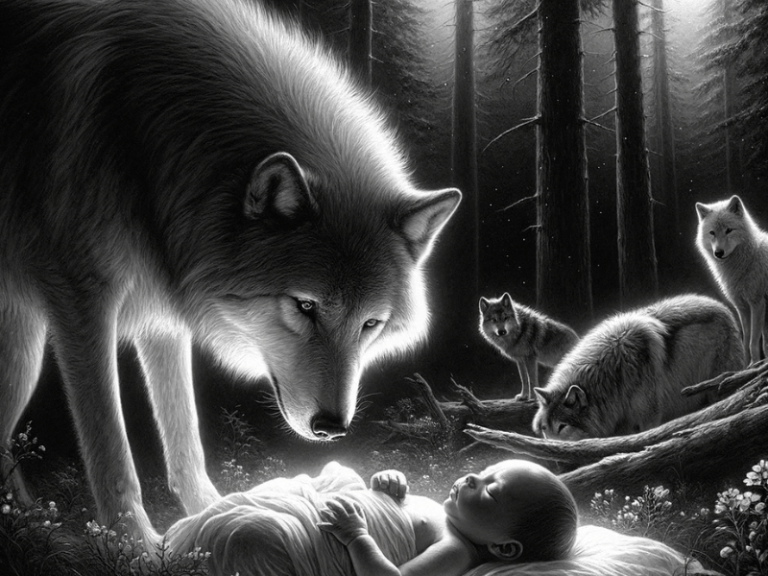A few years ago, there was a news article in the newspaper about the discovery of a “wolf child” in India, said to have been nurtured and raised by wolves. Many found this very strange. It’s often heard that fierce wolves would eat children, so how could wolves possibly nurture a child?
In the natural world, many animals have an innate tendency to nurture their offspring. We often see swallows diligently catching insects and carrying them back to feed their nestlings. We also observe mother monkeys caring tenderly for their young. Despite their fearsome appearance and aggressive nature, wolves, like other animals, possess the instinct and capability to nurture their young. Especially during the breeding season, female wolves protect their young fiercely, not allowing male wolves to approach; if a male wolf comes close, she will fiercely attack him. If a mother wolf finds her young missing, she will emit low calls and search everywhere to find them. As the young wolves grow older and are able to leave the den, both the mother and father wolves often take them out for activities until they are mature enough to leave the pack. Therefore, wolves often operate in packs.
Some animals are particularly sensitive to identifying unfamiliar young animals during nursing, quickly distinguishing and rejecting offspring of different species or even those born to different mothers of the same species. Sometimes, if a mistake is made, they may refuse to nurse even their own offspring. Conversely, some mothers not only raise their own kind but also nurture offspring of different species. They may even retrieve lost young found in the wild, mistaking them for their own and nurturing them until they grow up. We see examples such as old hens hatching ducklings or occasionally witnessing mother dogs nurturing tiger cubs or lion cubs in zoos, demonstrating that animals of different species or even different individuals within the same species exhibit varied nurturing behaviors towards young. However, young animals nurtured by other species may still struggle due to different living conditions or an inability to adapt to new environments, often failing to meet their basic survival needs and perishing.
Therefore, under natural conditions, the scenario where abandoned children are nurtured and raised by wolves is an extremely rare occurrence.

